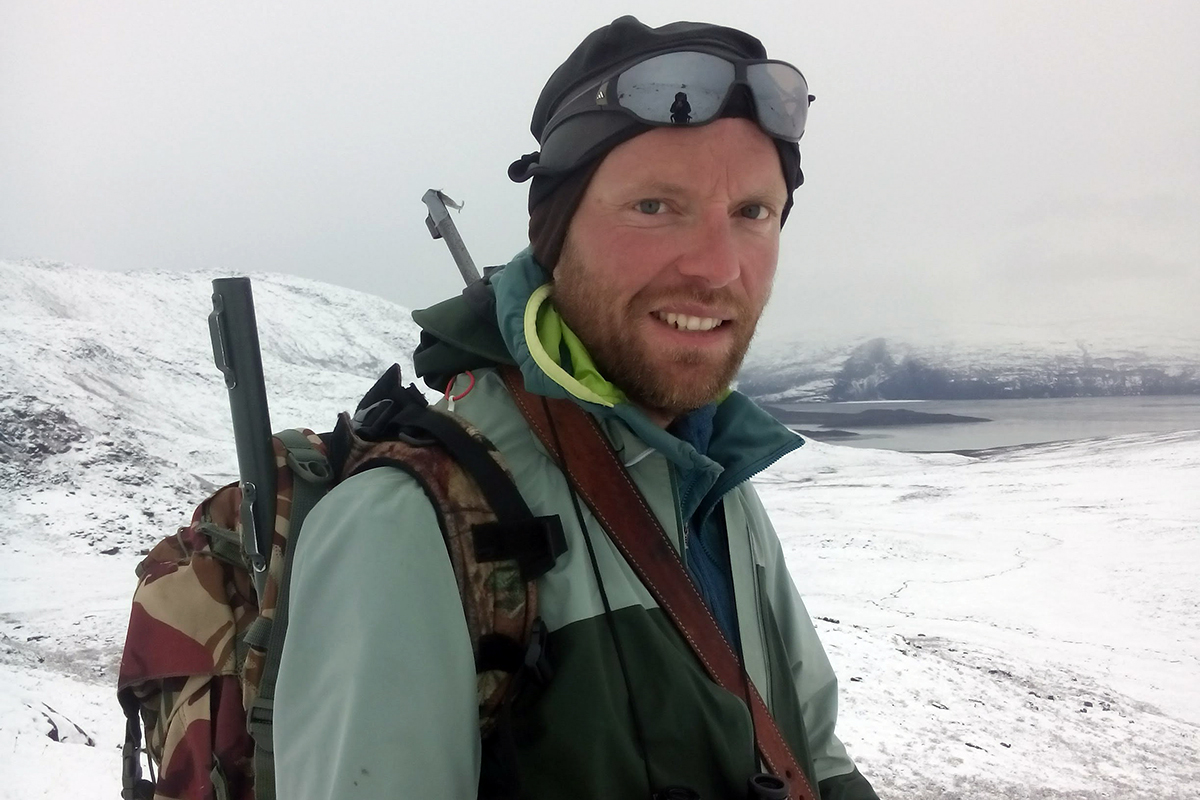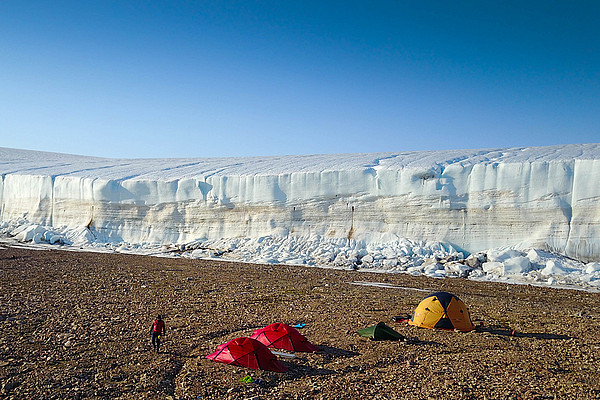Der Grönländische Eisschild hat eine besondere Bedeutung für den Klimawandel. Um zuverlässige Modelle über die zukünftige Klimaentwicklung erstellen zu können, ist es daher wichtig, Veränderungen der Gletscher über lange Zeit zu untersuchen. Diese Aufgabe haben sich ForscherInnen der Universität Graz gemeinsam mit dem Know Center Graz gesetzt. Sie wiederholen dazu, was Alfred Wegener vor fast hundert Jahren durchgeführt hat. So wie 1930 der legendäre Polarforscher werden sie in den kommenden drei Jahren nun mit neuesten Methoden Veränderungen der Eisoberfläche und der meteorologischen Bedingungen erheben, an denselben Orten wie damals.
1930 brach Alfred Wegener, ab 1926 Professor für Meteorologie und Geophysik an der Universität Graz, zu seiner letzten Grönland-Expedition auf. Die von ihm gesammelten meteorologischen und geophysikalischen Daten sind für die aktuelle Forschung äußerst wertvoll. „Verlässliche Daten von Grönlands Gletschern und Atmosphäre zu haben, die fast ein Jahrhundert umfassen, ist ein großer wissenschaftlicher Schatz. Wir hoffen, dass wir mit modernen Methoden mehr über die Wechselwirkung zwischen Eisoberfläche und Atmosphäre lernen können“, weiß Ass.-Prof. Dr. Jakob Abermann, Arktisforscher an der Universität Graz, um das Potenzial der Messungen Wegeners.
Der Vorteil der ForscherInnen von heute: Neue technologische Entwicklungen ermöglichen ihnen tiefere Einblicke in die physikalischen und klimatologischen Hintergründe der komplexen Wechselwirkungen zwischen Eis und Atmosphäre. „Neben konventionellen Methoden verwenden wir hier vor allem künstliche Intelligenz und Deep-Learning, um Muster und Zusammenhänge in den Daten zu identifizieren“, erklärt Priv.-Doz. Dr. Andreas Trügler, Experte für KI-Prozesse am Know Center.
Noch diese Woche brechen Jakob Abermann, Andreas Trügler, Sebastian Scher und Florina Schalamon zu einer dreiwöchigen Expedition an die Westküste Grönlands auf, um ihre Messstationen aufzubauen. Begleitet werden sie dabei von einem Filmteam, das die Arbeit der ForscherInnen dokumentieren wird.
Das Projekt „WEG_Re – Centennial Climate Drivers of Glacier Changes in Greenland“ unter der Leitung der Universität Graz, in Kooperation mit dem Know Center Graz, der University of Fairbanks (Alaska) und GEUS (Dänemark) wird vom Österreichischen Wissenschaftsfonds FWF gefördert.

